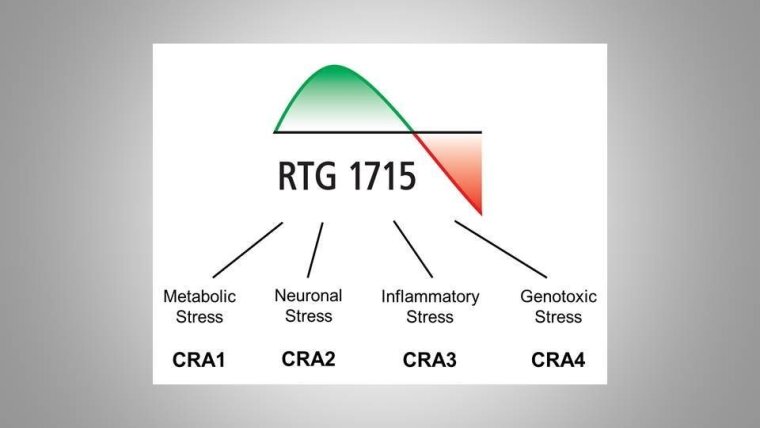
Research Projects
In response to potentially noxious factors organisms frequently exhibit ambivalent reaction patterns: Cells or organisms may react with increased vitality or adverse effects and degeneration. The respective response depends considerably on the strength, frequency, and quality of the noxious insults. A multitude of ambivalent stress responses has been observed in diverse biological systems but the underlying molecular mechanisms are mainly obscure.
Our RTG aims to explore the molecular dimension of these differential reaction patterns and to analyse the signalling reactions controlling the responses of cells and organisms to noxious factors (stressors). The complex reactions of signalling mediators and networks to defined stressors are investigated in a dose- and time-related manner in selected model species. Thereby, the research programme intends to build a hypothesis-driven mechanistic basis for the understanding of preventive ('pre-damage') and regenerative ('post-damage') responses in eukaryotic organisms. The results of these investigations will not only significantly advance the current knowledge on the molecular dimension of stress responses but also promote ongoing efforts of modern medicine to exploit the organism's preventive and regenerative potentials.
Core issues are:
- Identification of signalling reactions involved in adaptive stress responses
- Dissection of the dose-dependent and time-related effects of stressors
- Integrative analysis of adaptive stress responses